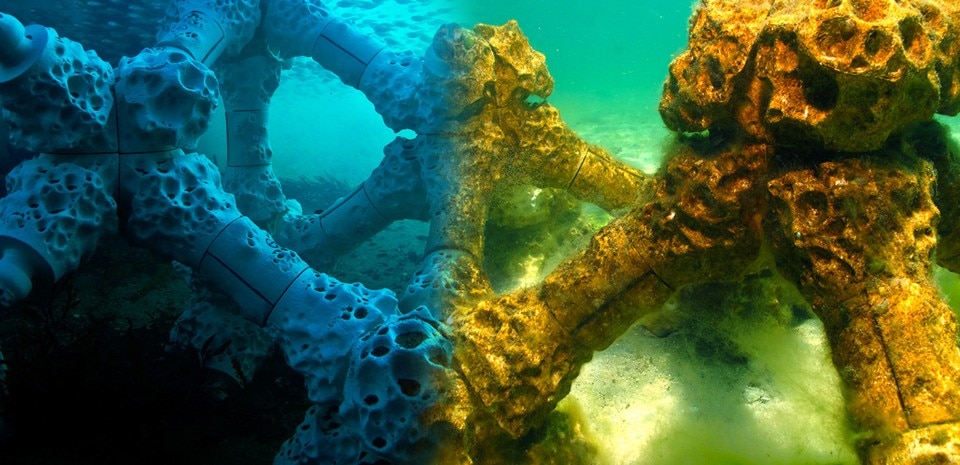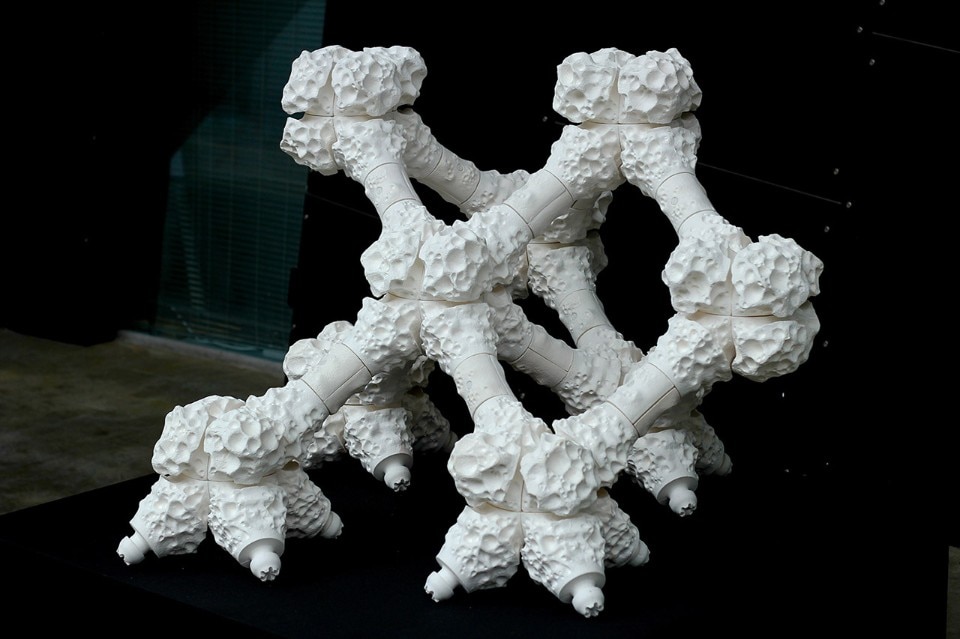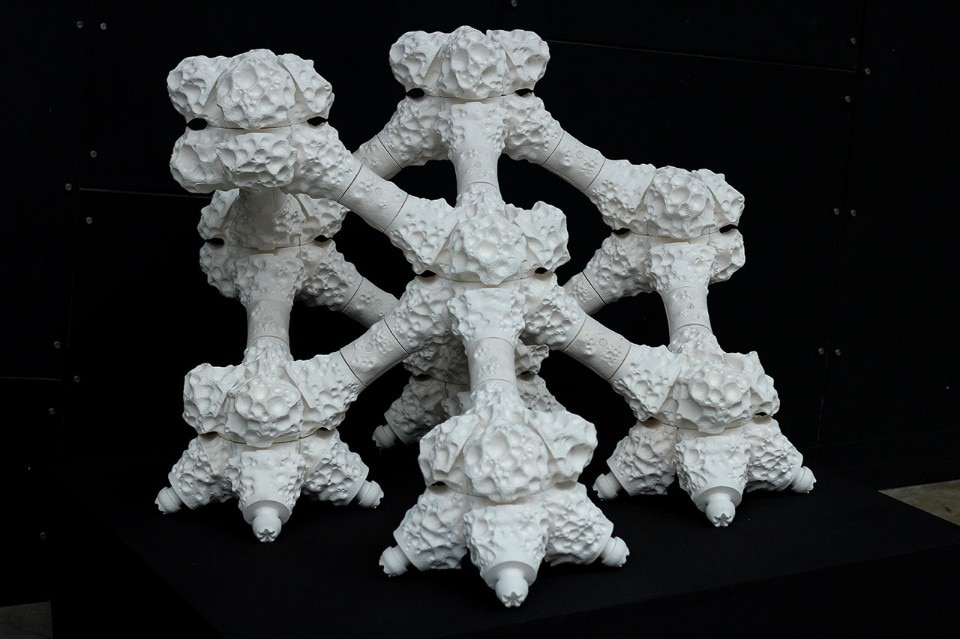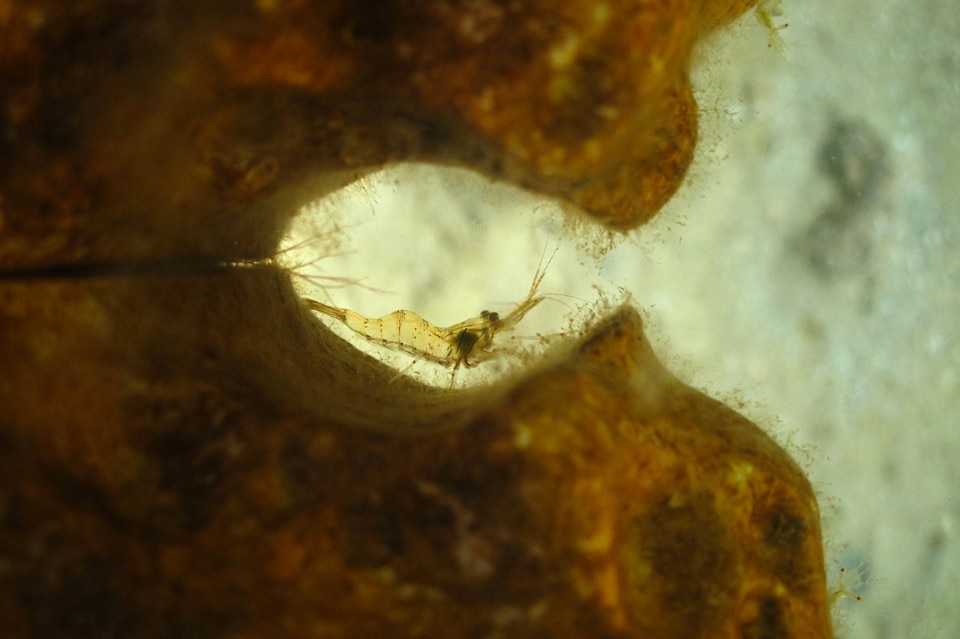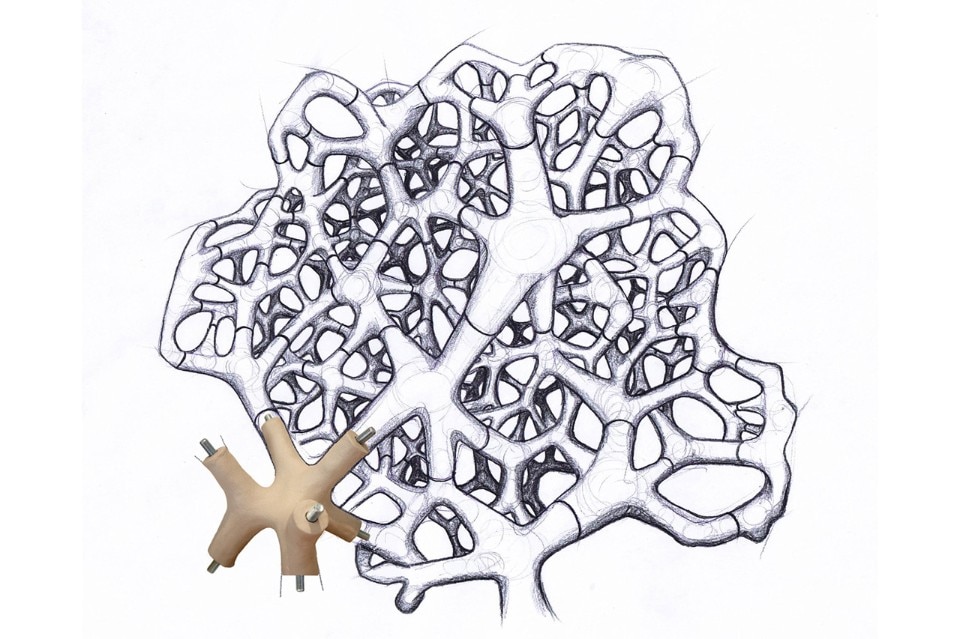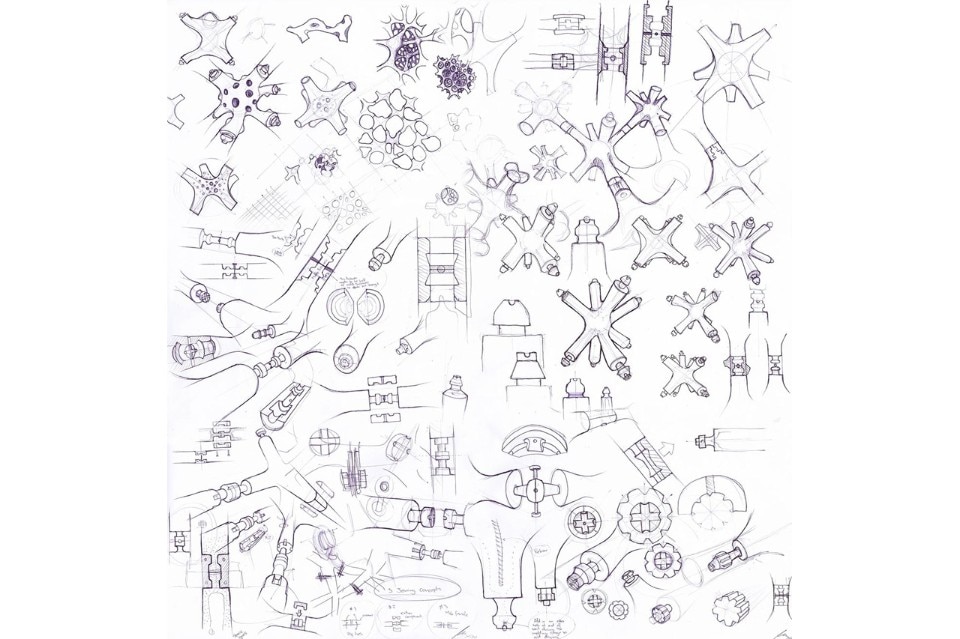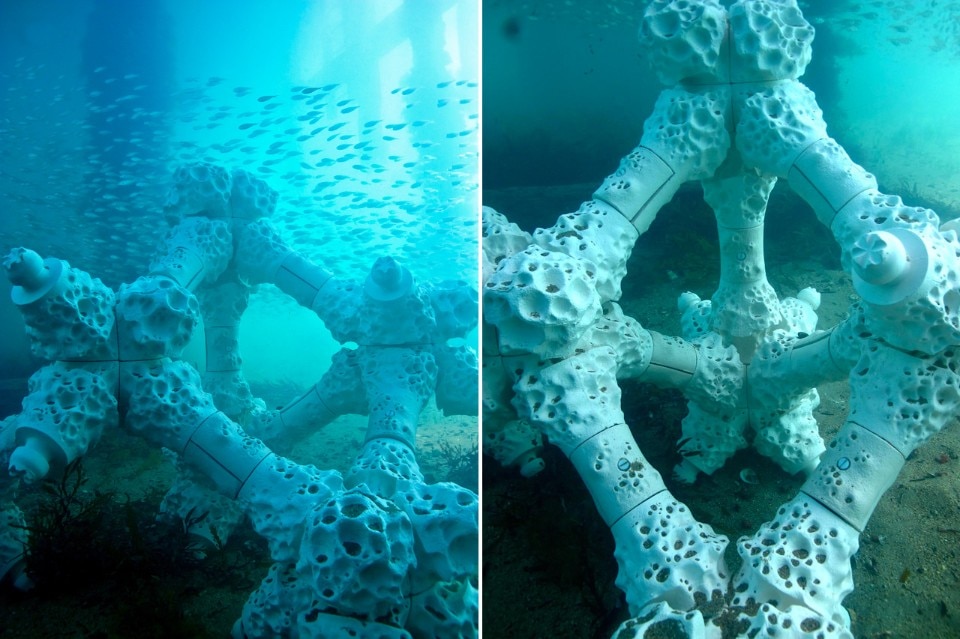
An existing solution to repair these damaged reefs is to create durable underwater structures that act as building blocks to help repopulate corals and fish stocks. The issue however with many existing artificial reef products is the scale and complexity of the implementation process. The required machinery is both expensive and inefficient, as well as inaccessible for island communities. Many artificial reefs do not provide adequate material and surface design to encourage the natural colonisation of organisms leaving the reefs devoid of corals, sponges and seaweeds.
MARS – that is currently being refined by Reef Design Lab in Melbourne, Australia – solves these issues by creating a modular design that can be deployed from small boats and implemented by divers. This completely eliminates the need for heavy-duty machinery drastically reducing costs.
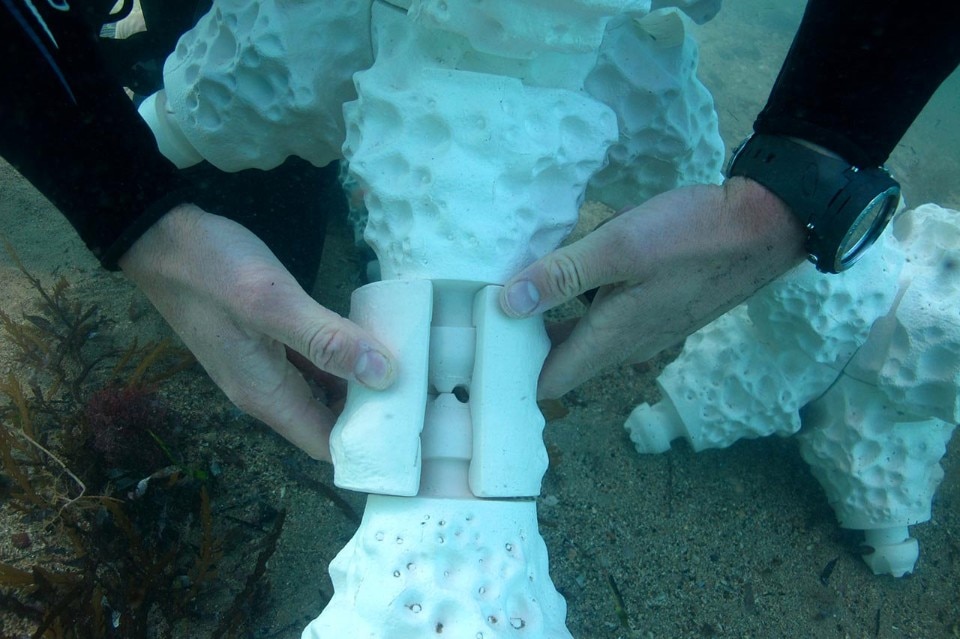
The product combines durable materials and functionally aesthetic surface design, with the versatility of a modular system. The surface of each unit provides unique indentations for transplanted and naturally occurring corals to prosper and provides protective space for a multitude of organisms.
The units allow for the structure to be tailored to specific environments, in shape and size creating a stronger and more natural reef system. The product can also be used to add features to man made structures such as piers and rock walls to increase the biomass of the area.
Research shows that marine organisms are more likely to colonise the surface of ceramic then any other artificial reef material. Ceramics chemical makeup is similar to that of calcium carbonate, the essential building block of coral reefs. MARS harnesses this crucial biological benefit designing all exposed surfaces with Ph neutral ceramic. The interiors of the units are then strengthened with marine concrete and fiberglass-resin rebar to produce a product that will not only stand the test of time but effectively help to sustain our most precious and invaluable ecosystems.
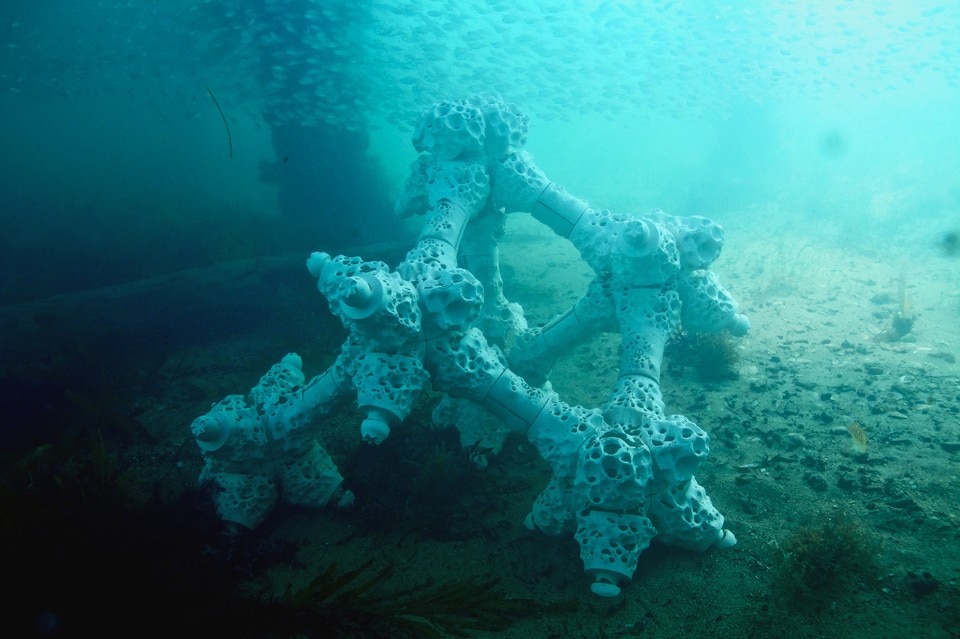
Modular Artificial Reef Structure (MARS)
Design: Alex Goad


